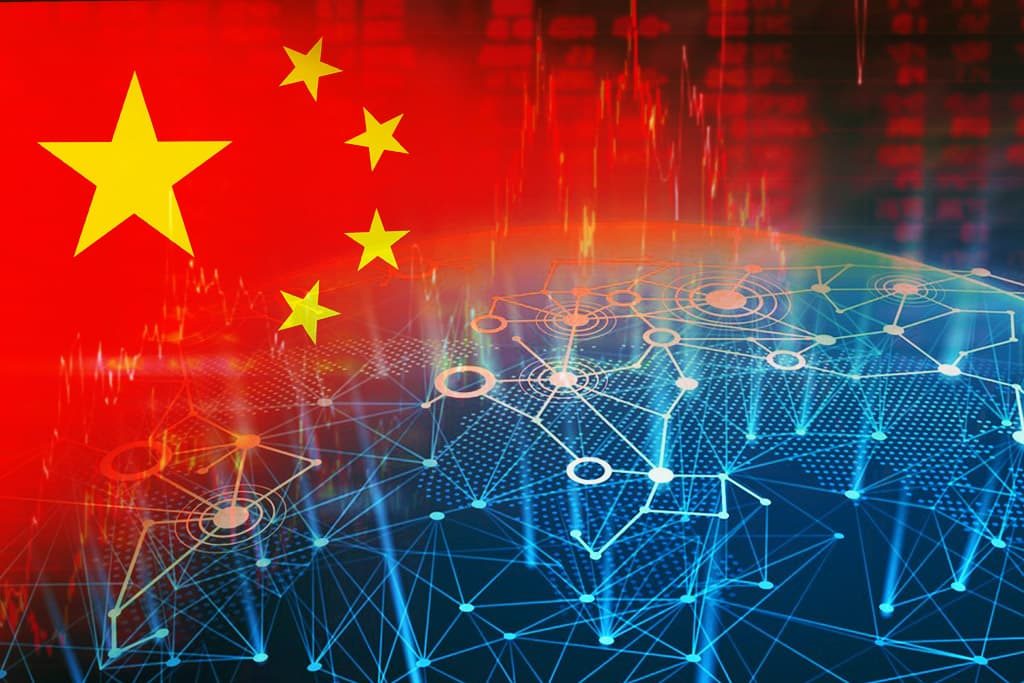Deloitte: China Looking to Use Blockchain as a ‘Strategic Weapon’

A different approach has been used to tackle the imbalance trade in the exchange market before the this invent of top-five strategic priority, however, the approach has recently started to receive a lot of attention as reputable companies gradually come out with the idea that has brought over 50% solve. Most of the Chinese enterprises about 75% believe the blockchain will be a strategic tool according to a report by Big Four audit and consulting firm Deloitte released on June 27.
In nutshell blockchain is a distributed arithmetic ledger that sorts different transaction into a block, each block is a chain to one another using sophisticated math method all the way back to the first transaction. Entries became searchable, transparent and permanent, which makes it possible for community members to view transaction histories in their entirety. Each of all update one after the other constitutes a new “block”, added to the end of the “chain” – a structure that makes it difficult for anyone to modify the records at a later stage. China
In the research report conducted, titled “Deloitte’s 2019 Global Blockchain Survey,” the company surveyed 1,386 enterprise representatives in 11 countries, including 200 respondents in China to provide greater knowledge about major attitudes and investments in blockchain as a technology.
The research was conducted between Feb. 8, 2019, and March 4, Deloitte noted in the report. After all side and done it shows clearly that the interest people have in the new invented of blockchain priority has effective changes of the globalization as a whole in general. Taking of the growth of trending with the analyses compiled
According to the recent survey results, Chinese enterprise employees have expressed the highest rate of confidence that blockchain tech is one of the top-five critical priorities in the country, while the same metrics in the United States has accounted for 56%.
At the same time, on a global scale, 53% of respondents claimed that they see distributed ledger technology (DLT) as a top-five strategic priority, up 10% from the numbers of 2018, according to the report.
With all these findings blockchain technology should be used to benefit all of the humankind, not just large corporations with superior resources, so we’re dedicating our resources to catalyze tremendous economic and social change. It is a movement of Passionate driven, like-minded people dedicated to conceptualizing and incubating block chain-powered ideas, ventures and businesses that will have a positive impact in human kind for generations to come. Like China always do the right thing in global business.
Paul Sin, leader of Deloitte’s as is-Pacific blockchain lab and consulting partner at Deloitte Advisory, noted in the report that China will be implementing blockchain strategically “than anywhere else in the world” instead of “tactically.” He wrote in the report:
While China has been among anti-crypto countries, having banned both initial coin offerings (ICOs) and bitcoin (BTC)-to-fiat exchanges in late 2017, the country has been actively disrupting the underlying technology of crypto. In March 2018, Financial Times reported that the most patent filings for blockchain tech to the World Intellectual Property Organization (WIPO) in 2017 came from China.
Since then, blockchain has remained a major focus of the development in China, with the country reportedly leading the world in the number of developed blockchain projects as of April 2019. Alongside, China’s tight policies to crypto have not appeared to soften so far, with the country’s social media giant and payment service supplier WeChat having banned crypto transactions in its payments policy in May 2019.
For now, most companies are switching to their first deployments; blockchain is running parallel with companies’ current systems – often older databases or spreadsheets like Microsoft’s Excel. The hardest part will be to create new business models. Deploying the blockchain enterprise-wide will means companies will often have to scrap their existing business processes and start from scratch. An endeavor not for the faint-hearted.
![]()